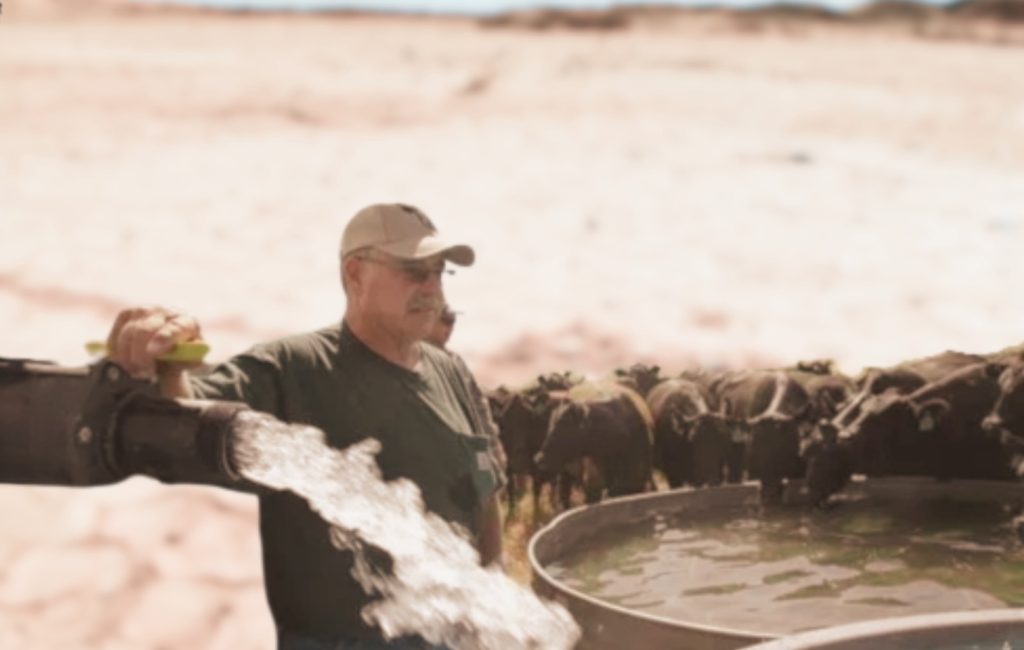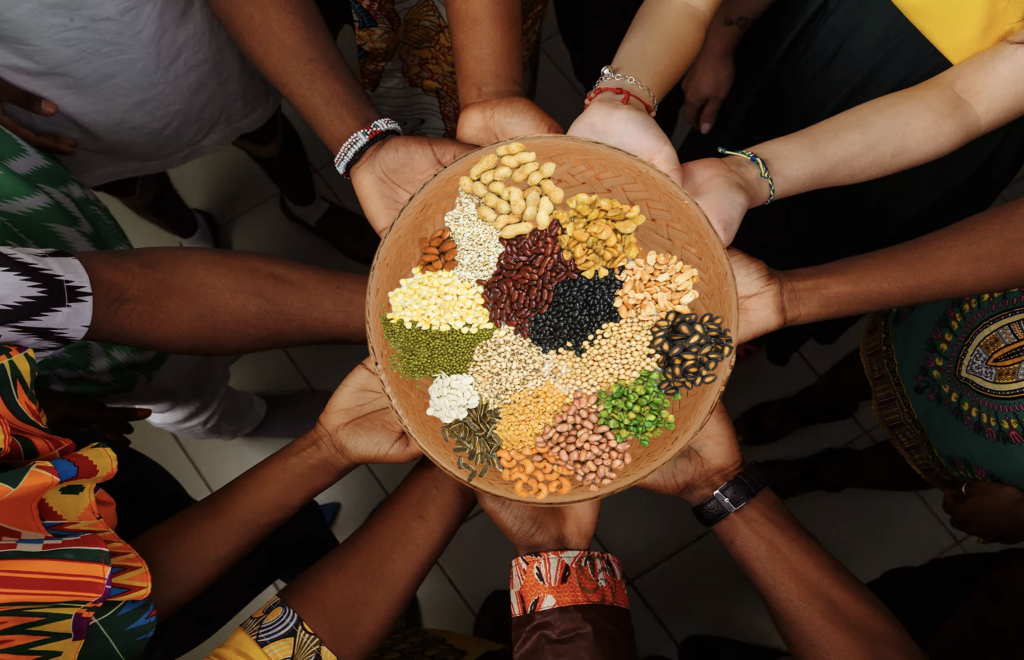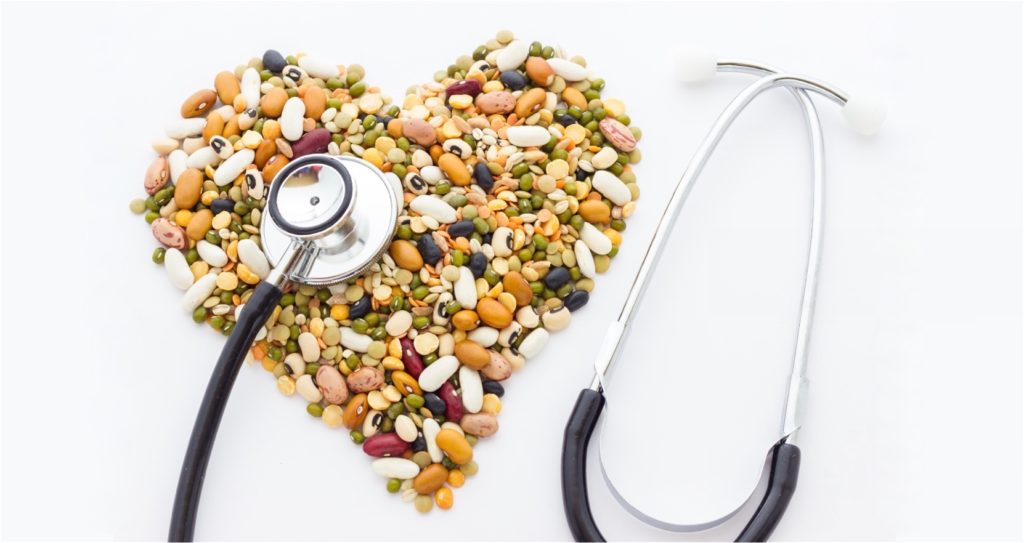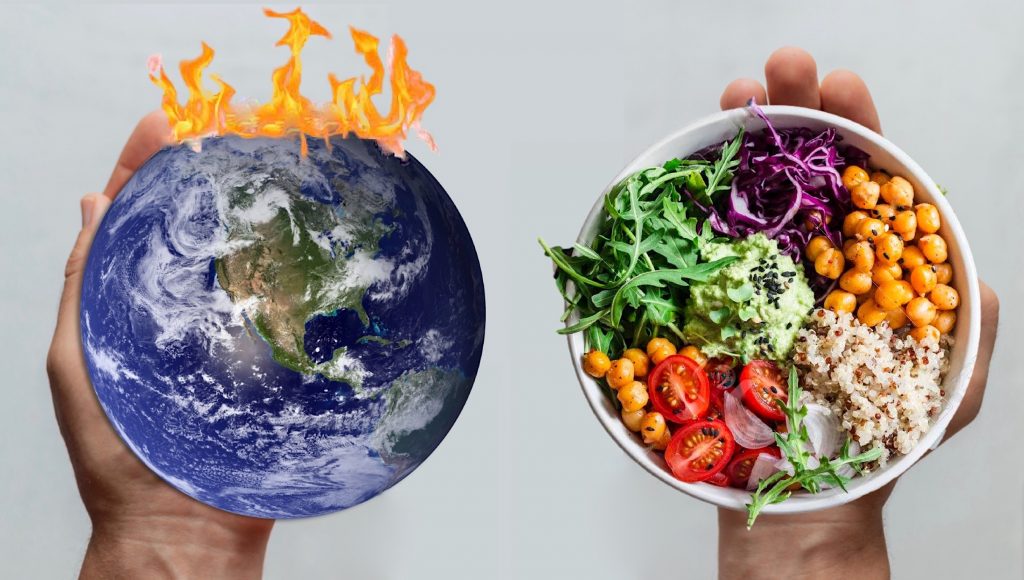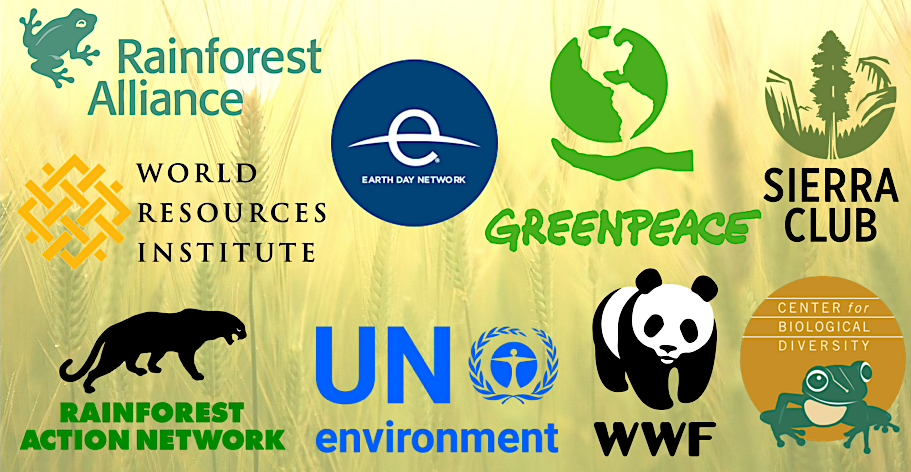Fish production falls into two main categories: aquaculture, also known as fish farming, and wild capture, which depends on large-scale, indiscriminate techniques such as bottom trawling and longlining. Both categories of fishing inflict tremendous suffering on animals, and monumental destruction on marine ecosystems. But so do production of meat, dairy, and eggs. Here’s the deep […]
Individual Food Choices Are Crucial to Saving the Planet, Experts Say
Climate grief is a real thing, and it’s been significantly amplified the past few years. But as climate-fueled disasters wreak unprecedented devastation across the globe, at the same time that the U.S. withdraws from the Paris Climate Agreement, bans the use of terms like “climate change,” “climate crisis,” and “climate science” on government websites, and […]
No Drought: Plant-Based Diets Crucial to Ending Water Crisis, Experts Warn
We are living in an increasingly water stressed and water scarce world, with dire implications for ecosystems, economies, and communities worldwide. Scientists have recently warned of an alarming and unprecedented escalation in global drought and aridity over the past few decades. A 2022 UN report found that since 1970, weather, climate and water hazards accounted […]
Cost of Eggs Got You Down? There’s a Bean for That.
The ongoing avian influenza (bird flu) outbreak has seen egg prices soar, averaging around $5 per dozen in January 2025, and running as high as $15 per dozen in some places. Since the start of the outbreak in 2022 (2020 in Europe), more than 160 million farmed birds have been killed or “culled” in the […]
We Need a Plant-Based Food System to Feed the World
In order to feed a growing global population, the United Nations has projected we will need to produce at least 50% more food by 2050 without using any more land. At the same time, we will need to reduce greenhouse gas emissions from agriculture by two-thirds in order to meet the minimum climate targets to […]
If You Care About the Planet, Eat a Plant-Based Diet, Scientists Urge
Last month, the world’s leading body of climate scientists, the United Nations Intergovernmental Panel on Climate Change (IPCC), published the fourth and final installment of a rigorous multi-year assessment that marks their most dire and urgent climate analysis to date. The report synthesizes scientists’ key findings, predictions, and recommendations for the best ways to reduce […]
Beans Can Save Your Heart, and the Planet
Our bean project needs sponsors! Will you show some love? Did you know that pulses— the dry, edible seeds of legumes, which includes beans, peas, chickpeas, and lentils— are one of the best foods for heart health? Not only do they confer a host of protective and preventative heart benefits, but doctors say eating pulses […]
Earth Day? We Need An Earth Diet, Scientists Urge
In their most dire climate report to date, the UN’s Intergovernmental Panel on Climate Change (IPCC) has urged a switch to plant-based diets as the single most important shift individuals can make to halt the course of climate warming and prevent the most catastrophic impacts. For the first time in 34 years since the United […]
Get Your Protein From Nuts, Not Meat Says Major Medical Study
In one of the largest multi-year studies of its kind, a report published last year in the International Journal of Epidemiology looked at more than 81,000 Seventh-day Adventists in the US and Canada, with participants pretty evenly split between vegetarians and meat-eaters. From 2002 to 2007, participants kept records of what kinds of foods they […]
Environmental Organizations Say Eat Plants for the Planet
In recent decades, leading environmental organizations and policy makers have been conspicuously silent on the environmental impacts of our food choices. In particular, many activists have critiqued the absence of dialogue around the disproportionately destructive impacts of animal agriculture. But that appears to be changing.




